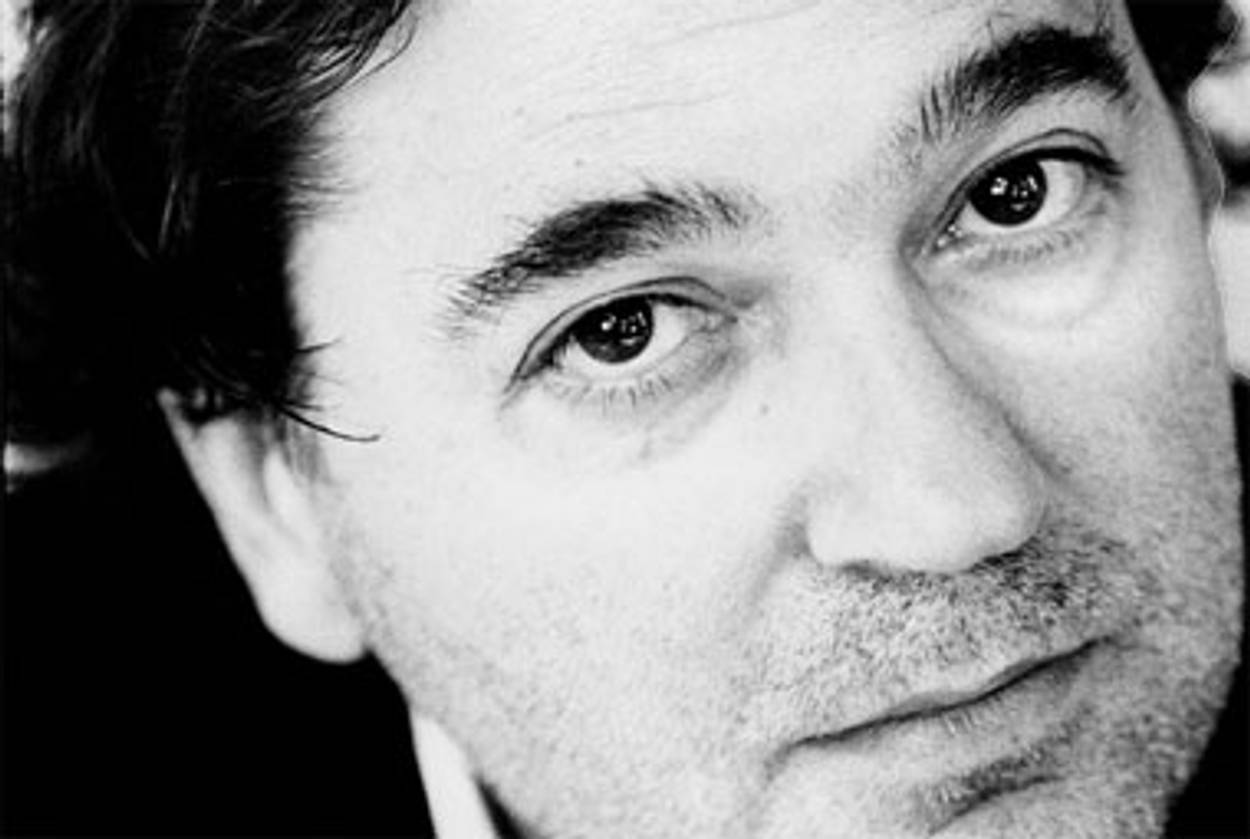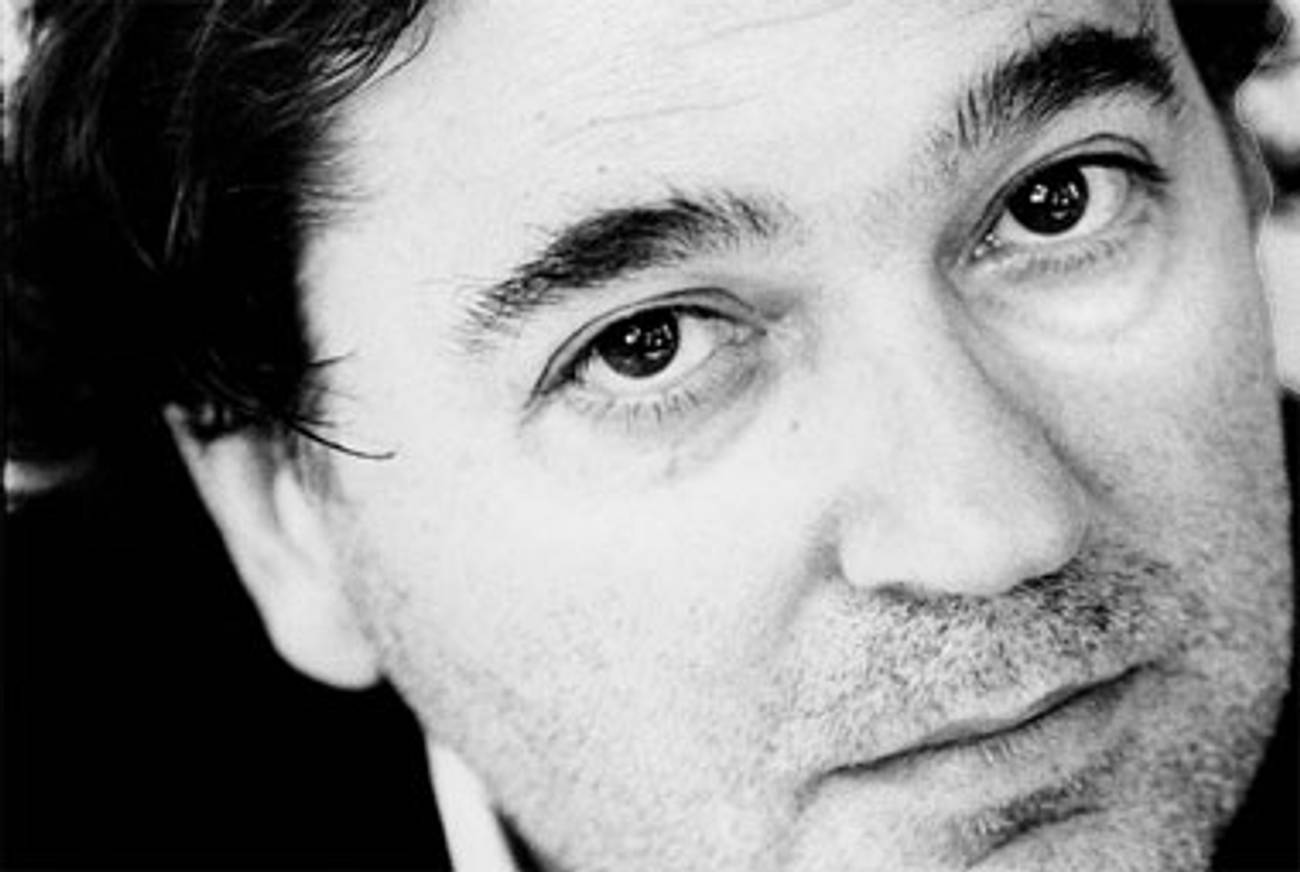Theological Calisthenics
The characters in ‘God’s Gym’ strive to make order out of life’s chaos




Until I read Leon de Winter’s God’s Gym, a pulpy yet literary Dutch thriller just published in English, I had never heard of its author. It is only the second of de Winter’s books to be translated here—like the first, Hoffman’s Hunger, it is published by Toby Press, which does invaluable work translating Jewish writers from around the world into English. Yet de Winter, a Dutch Jew, seems like a natural for the American market, and especially for American Jewish readers. Not only does he divide his time between Holland and Los Angeles—where God’s Gym is set—but he has been called, by a Swiss newspaper, “an American among the European writers,” for his ability to use mass-market genres to explore political ideas.
Since the attacks of September 11, 2001, de Winter has been vocal in his defense of Dutch traditions of freedom and tolerance against encroachments by political Islam, his denunciations of the Iranian regime, and his support for America’s invasion of Iraq. If he were an American, in other words, he would be a neoconservative. And his newest novel, The Right of Return—published last year in Dutch and not yet translated into English—seems like a kind of neoconservative dystopia or fever dream. Set in the year 2024, it imagines a future in which Israel’s territory has been whittled down to almost nothing, most Israelis have emigrated to America or Europe, and Jewish children are recruited as suicide bombers by Muslim terrorist groups. (De Winter discussed the book, and its deliberately provocative premise, in this interview with Der Spiegel.
God’s Gym, which appeared in the Netherlands in 2002, also belongs to the post-9/11 moment, and grows out of the same clash of fundamentalism with Western ideals and Jewish anxieties. The unwilling hero of the novel is Joop Koopman, a Dutchman who lives in the Venice neighborhood of Los Angeles and makes a tenuous living as a screenwriter. (De Winter himself has directed films and television programs as well as writing fiction.) Joop’s mother, we soon learn, was Jewish, and the only member of her family to survive the Holocaust. She made sure that Joop went to synagogue and had a bar mitzvah, if only for the sake of preserving tradition: “It’s about people who are no longer here, something like that,” she explains to her “strict atheist” husband. There is a rough parallel here with de Winter’s own biography—the author, like his hero, was born in the early 1950s in the town of Den Bosch. He evokes the strange mood of such post-Holocaust Jewish communities, which could hardly summon a minyan and “urgently needed to be enlarged by a boy who could assure the continuity of the services.”
Joop knows little about Judaism and certainly doesn’t believe in it—he “could read the Hebrew texts, but he didn’t understand a word, just as he could read mathematical equations without any understanding.” But Jewishness retains a strong hold on his imagination and conscience. As a young man, he faked illness to avoid conscription into the Dutch Army; but when the Yom Kippur War broke out later that year, he rushed to the Israeli embassy to enlist, and spent several months working behind the lines.
One of his fellow volunteers—“all young Jewish Dutchmen, all descendants of survivors”—had been a star student named Philip van Gelder. Now, as the novel opens, in December 2000, van Gelder suddenly reappears in Joop’s life, setting the thriller’s plot in motion. He is now an Israeli, who has taken the name Uri, and works in some shadowy capacity for the Ministry of Defense. He surprises Joop with his forthrightly Jewish-nationalist views: when Joop complains about the Bush-Gore election of 2000, Gelder replies, “Makes no difference, Bush will be as good for us as Gore.”
“Us?”
“Us—you and I—the Jews.”
“I belong to nothing.”
“Makes no difference to me. For Jews and for anti-Semites you remain a Jew.”
Philip’s tribal toughness inspires in Joop a familiar mixture of envy, guilt, and disdain. The whole encounter plays out the double stereotype of violent Sabra versus wilting Diaspora Jew; “If we wanted to, we’d break the Palestinians as though they were matchsticks,” Philip rants. What ensues can be read as a classic compensation fantasy. For it turns out that Philip wants to recruit Joop into a Mossad operation to trap a Dutch Muslim terrorist, Omar van Lieshout, who has just turned up in Los Angeles. Here is a chance for the pacific, assimilated, intellectual Jew to turn secret agent and help save the Jewish people. “You need me for the future of Israel?” Joop says incredulously, and indeed, in the contrived logic typical of the genre, it turns out that he is the one man who can capture the deadly Omar.
But on the very day Joop meets Philip, a wholly different kind of violence erupts into his life: his only daughter, Miriam, is killed in a motorcycle accident. The domestic tragedy immediately displaces international intrigue in Joop’s mind, and also in the novel’s attention. This creates a problem of pacing and balance for God’s Gym: we start out reading a Jewish spy novel, then for chapter after chapter we are reading a harrowing story of a parent’s mourning for his child. We see Joop agree, in a daze, to donate his daughter’s heart for a transplant—a decision that will come to haunt him. In the long flashbacks and reveries that follow, we learn about Joop’s quasi-incestuous admiration for the seventeen-year-old Miriam (he is divorced from her mother), and there is a deliberately uncomfortable scene where he catches a glimpse of her in the shower: “What he saw of her was mainly her shape. But a number of details did not escape him.”
The story takes another unexpected turn when Joop enters into a bizarre relationship with Erroll Washington, the man who was giving Miriam a ride on his motorcycle when she was killed. A black American martial-arts champion nicknamed Godzilla—usually shortened to God—he owns the titular God’s Gym, which is not a metaphor for the Middle East, as the reader might at first suspect, but a health club in Venice where Miriam used to work out. To make amends for his role in the accident, God, as Joop learns to call him, volunteers to become his servant—living with Joop, running his household, taking care of Miriam’s funeral. The racial aspects of this relationship are distinctly queasy, as Joop recognizes, and an American writer surely would have avoided them. Eventually, “God’s” search for meaning in the accident leads him to Chabad, and he begins studying to convert to Judaism.
The imperative of faith, the need to make order out of the casualties of life, is the real theme of God’s Gym. Philip van Gelder has faith in the Jewish people, Erroll in messianic Judaism, Omar in Islam. Even Linda, Joop’s old lover, who mysteriously reappears in his life after decades, seems to have an answer: she has become a Buddhist, and travels around the world with a Tibetan monk. When this monk claims to have secret knowledge, from a past life, about the fate of Joop’s family in the Holocaust, he is embroiled in yet another layer of improbable mystery. The only skeptic in a novel of true believers, Joop comes to seem at once admirable and pitiable. No wonder he grows obsessed with discovering the fate of his daughter’s heart—as though meeting the transplant recipient would somehow make sense of her death.
To say that the way de Winter ties together all these strands of plot is improbable is no real criticism of God’s Gym. Thrillers are supposed to be contrived and improbable, just as sonnets are supposed to rhyme. In a sense, however, God’s Gym is injured by its own ambition, its desire to shoehorn serious thoughts about faith and suffering into a genre novel. The resolution of the mysteries of Omar and Linda, when they come, seem trivial next to the greater mysteries—of Jewish identity, family and sexual love, faith and reason—that de Winter also broaches. But even so, God’s Gym is an entertaining and unusual book, which ought to introduce Leon de Winter to the wider American readership he deserves.
Adam Kirsch is a contributing editor to Tablet Magazine and the author of Benjamin Disraeli, a biography in the Nextbook Press Jewish Encounters book series.
Adam Kirsch is a poet and literary critic, whose books include The People and the Books: 18 Classics of Jewish Literature.
Adam Kirsch is a poet and literary critic, whose books include The People and the Books: 18 Classics of Jewish Literature.